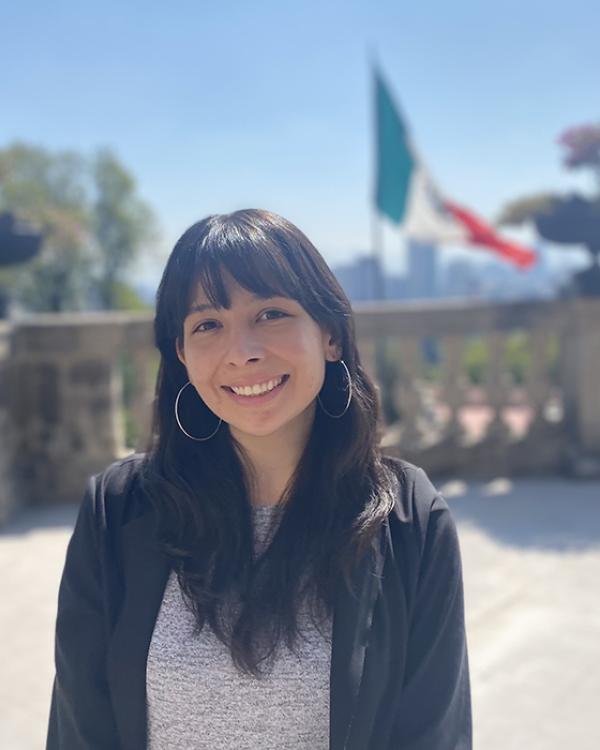
Isabel López, proud first-generation college student, daughter to immigrant parents, and doctoral student in Counseling Psychology, studies how factors such as acculturation, mental health knowledge, and barriers to care all influence help-seeking attitudes and behaviors among ethnic minorities. The intersectionality of López’s identity informs her passion for her current area of research, which addresses the level of culturally relevant care provided to Latinx and other ethnic minority families seeking mental health services.
López is currently analyzing findings from a qualitative study spearheaded by her advisor and mentor, Dr. Andrés Consoli; this study examines social representation of psychotherapy among groups of low-income Mexican and Mexican Americans who accessed specialty care for clinical depression. López and Dr. Consoli interviewed eight Mexican and Mexican American adults, attempting to understand how each individual perceives their own psychotherapy experience, and how each person understands the practice of psychotherapy itself. López explains, “This is an analysis of social representations that really focuses on personal and second-hand experiences, and how these experiences inform certain values, knowledge, and attitudes regarding psychotherapy.”
López was immediately drawn to this study for its examination of barriers to mental health care, and its evaluation of methods to mitigate those issues to increase individuals’ accessibility to therapy services; her own identity intersects with her research interests like a puzzle piece. “My general interest in this research program comes from the experiences I had growing up in my own community, observing my own family members and noticing the stigma associated with mental health—it's almost taboo—and hearing very similar accounts from these participants,” she explains. “It's just the perfect fit: this is exactly the kind of work that I want to be doing.”
This study’s findings demonstrate a common theme: most participants were unfamiliar or uncertain with the term psychotherapy, despite each individual receiving such services. These findings do not imply any incompetence on the participants’ end, but rather they signify an overarching systemic issue regarding the way in which mental health providers engage in outreach with underserved communities. The disconnect between a participant who simply takes part in mental health services as opposed to one who does so as an informed consumer implores providers to consider social representation as a valuable tool in elucidating such a prominent intervention as psychotherapy for all communities.
For example, providers must be mindful of language barriers and careful with jargon when servicing their diverse array of clients. “Providers and participants may be reading the same book but could be on completely different pages,” López insightfully explains. “I'm a bilingual Latina, but I’m also a bilingual provider. I cannot promote bilingual services enough.” Specific social-group dynamics seem to play a role in the ubiquity of adequate psychotherapy information and intervention as well. López recalls, “One participant brought up a cultural component, explaining that, as a Latino identified male, he was not as comfortable with sharing his feelings because he didn't grow up with that openness. I think that cultural component really resonates with a lot of other members in the community as well.”
López remains extremely passionate about the work that her mentor and herself are doing, and the ways in which her studies relate to her disciplinary interests. She strives for the normalization of destigmatized mental-health conversation across all cultures, which begins with a psychology field in which providers promote mental health services in underserved communities, honoring and educating themselves on their clients’ social representations.
López leaves us with her impassioned aspiration for the direction of her field’s providers: “Don’t make historically overlooked populations come to you. Go out and see where those clients are coming from, then meet them where they are. Put in the effort to understand their needs and how best to respond to those needs. Overcome language barriers. And hopefully we will see our field continuing to advance in a cultural context—I am hopeful and excited for what is to come.”